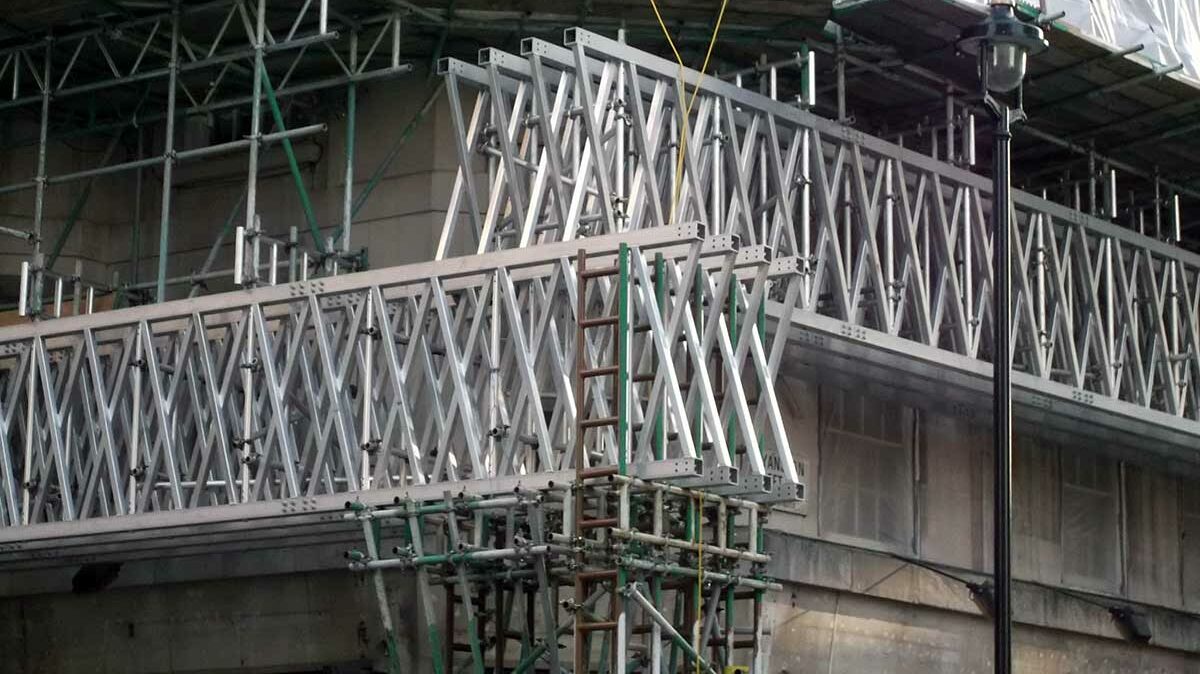
However, as recent revelations from Apollo Cradles have shown, this foundation is being undermined by the production and sale of substandard and unapproved equipment.
Apollo’s discovery of knock-off copies of its X-Beams, accompanied by damning test results showing serious structural failings, has raised a number of eyebrows in the scaffolding sector, to say the least. And it should. The issue is about much more than intellectual property theft or lost revenue—this is a matter of life and death.
The independent testing of these counterfeit beams uncovered a flurry of serious welding defects: gas pores, lack of fusion, and cracks. These aren’t just technical terms buried in the jargon of safety standards; they’re faults that could lead to catastrophic failure on a live scaffolding project. When scaffolders or contractors are working at height, relying on the integrity of every piece of equipment around them, even the smallest defect can have devastating consequences.
Why, then, do such dodgy products find their way into the market in the first place? The answer is often cost.
In a competitive industry where margins are tight, cheaper alternatives can seem tempting. But when cost-cutting comes at the expense of safety, it’s the wrong economy.
These knock-off products, manufactured without proper auditing or adherence to safety standards, pose enormous risks—not just to workers, but to the companies that use them.
The irony here is that by seeking cheaper products, companies could end up paying much more in the long run. A single failure could lead to costly legal battles, huge fines, and, in the worst-case scenario, the loss of life. And once that happens, no savings on cheaper equipment will ever feel justified.
If Apollo Cradles follows through on its threat to name the offending company in court, the reputational damage could be irreversible, not just for them but for any businesses that inadvertently bought the unapproved beams.
But this issue isn’t unique to Apollo. Across the industry, counterfeit and substandard equipment is creeping in through the cracks. The rise of cheap, unregulated manufacturing hubs means that these dangerous shortcuts are becoming easier to take. And unless the industry acts decisively, the risk of a major incident looms large.
This is why initiatives like NASC’s audits are critical. They ensure that the equipment scaffolding firms are using meets stringent safety standards. However, in cases like this, where an unaudited member is involved, it raises tough questions about the limitations of voluntary compliance.
“As an industry, we need to recognise that cutting corners today can lead to tragedy tomorrow.”
Perhaps it’s time for the scaffolding industry to take a harder stance. A stronger, more regulated framework could prevent unauthorised products from ever reaching construction sites. A combination of stricter enforcement and harsher penalties for offenders could help ensure that safety remains the top priority.
Ultimately, this issue boils down to a simple truth: there are no shortcuts when it comes to safety. The real cost of substandard equipment isn’t financial—it’s human.
As an industry, we need to recognise that cutting corners today can lead to tragedy tomorrow. If we can’t guarantee that the products we’re using are up to standard, we shouldn’t be using them at all.
The scaffolding industry has made great strides in recent years in improving safety and professionalism. But incidents like this are a stark reminder that the job is far from done. It’s time to close the gaps before those cracks widen into something far more dangerous.


